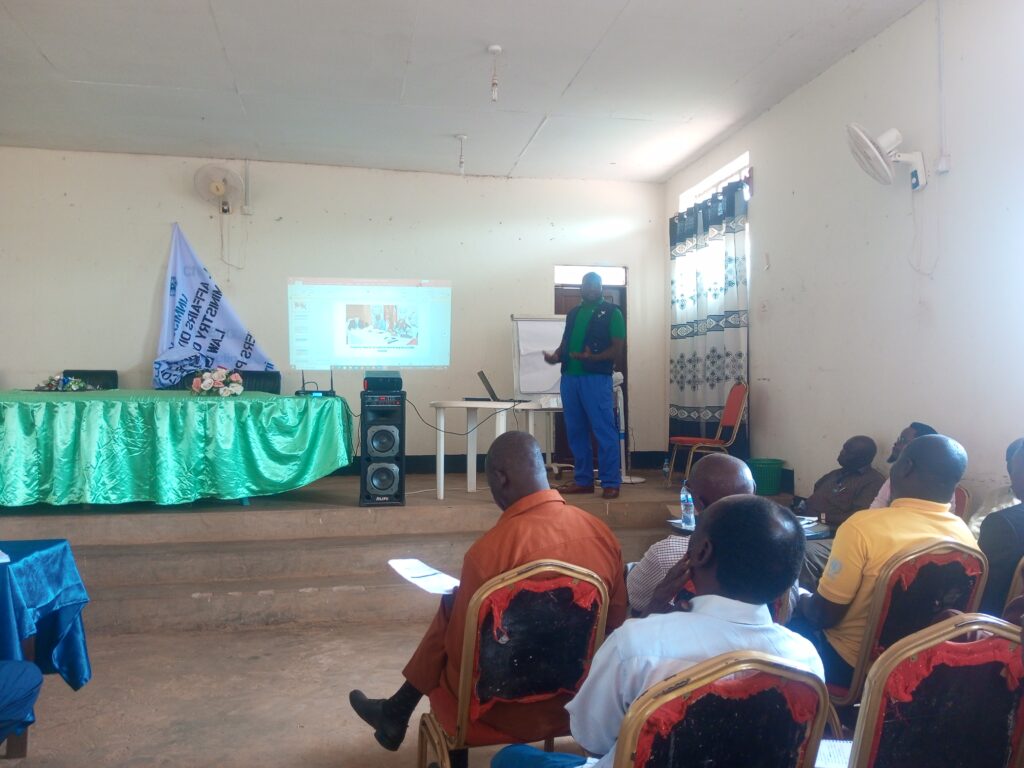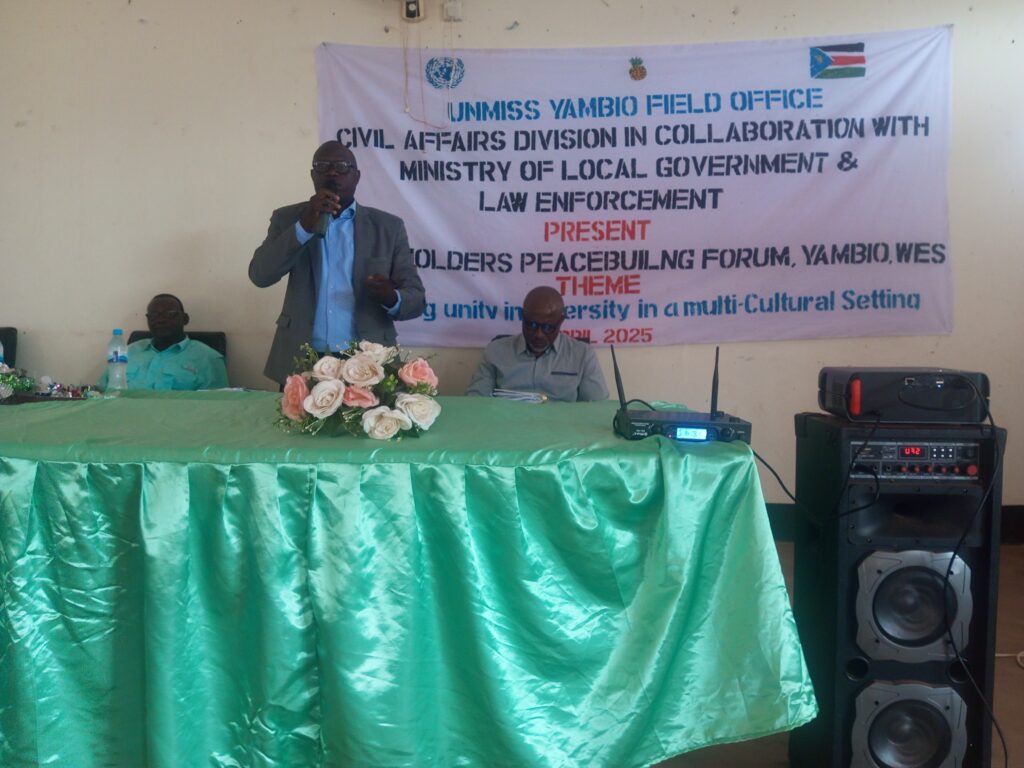

On 24-25, April, 2025, Western Equatoria State (WES) hosted a significant stakeholder peacebuilding forum in Yambio, supported by the United Nations Mission in South Sudan (UNMISS). This two-day event gathered diverse participants, including government officials, civil society organizations (CSOs), traditional rulers, and religious leaders, all united by a common goal: to promote peace and stability within the region.
The forum aimed to facilitate collaboration and dialogue among different stakeholders, recognizing that lasting peace in South Sudan requires the collective effort of all sectors of society. Through engaging discussions, participants explored effective strategies for conflict resolution and reconciliation to address ongoing tensions in local communities. Wanga Emmanuel, the Chairperson of the Network of Civil Society Organizations in WES, underscored the crucial role CSOs play in implementing peace initiatives, particularly the Revitalized Agreement on the Resolution of the Conflict in South Sudan (R-ACRSS) and Tumaini.
Another key objective of the forum was to enhance the capacity of stakeholders to engage in peacebuilding activities effectively. Participants were given the opportunity to participate in group exercises designed to share ideas and experiences related to peace and conflict resolution. These collaborative activities not only fostered friendship among participants but also allowed for a better understanding of the different roles each group can play in promoting peace.
The discussions highlighted that strengthening local capacities would lead to more sustainable peace initiatives, equipping community leaders with the tools they need to make a difference on the ground. Engaging CSOs in grassroots efforts ensures that peacebuilding strategies are relevant to the local context and include the perspectives of those most affected by conflict.
Promoting respect for cultural and political diversity was another vital theme of the forum. In a country as diverse as South Sudan, recognizing and valuing different perspectives is essential for enhancing social cohesion and community resilience. The forum provided an opportunity for stakeholders to engage with one another, share their unique cultural backgrounds, and foster mutual respect.
By encouraging dialogue among various ethnic groups and communities, the forum aimed to lay the groundwork for a more inclusive approach to governance and peacebuilding—essential elements for long-term stability.
Group Exercises: A Pathway to Understanding
The forum’s group exercises served as a crucial component for building relationships among stakeholders. These activities allowed participants to brainstorm and propose actionable ideas that could lead to peace in Western Equatoria and South Sudan as a whole. The collaborative nature of these exercises helped break down barriers and highlighted the shared commitment to a peaceful future.
Conclusion
The stakeholder peacebuilding forum in Yambio stands as a testament to the power of collaboration in addressing the complex challenges facing Western Equatoria State. By bringing together diverse perspectives and fostering dialogue, the event laid the foundation for a unified approach to peace and stability. With the ongoing commitment of CSOs, government officials, traditional leaders, and religious authorities, there is hope for a brighter, more peaceful future in South Sudan.


